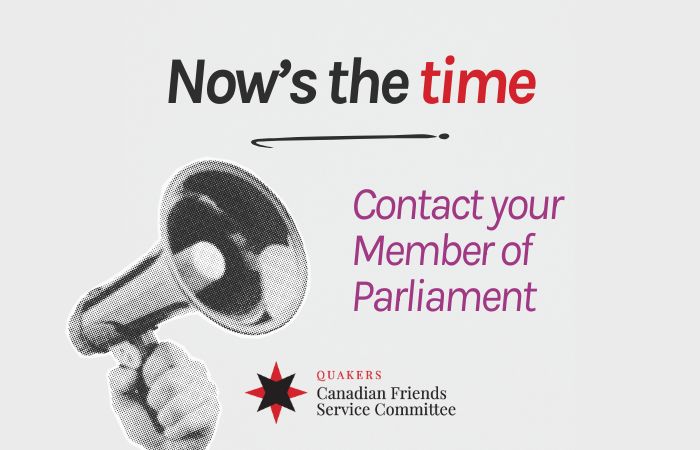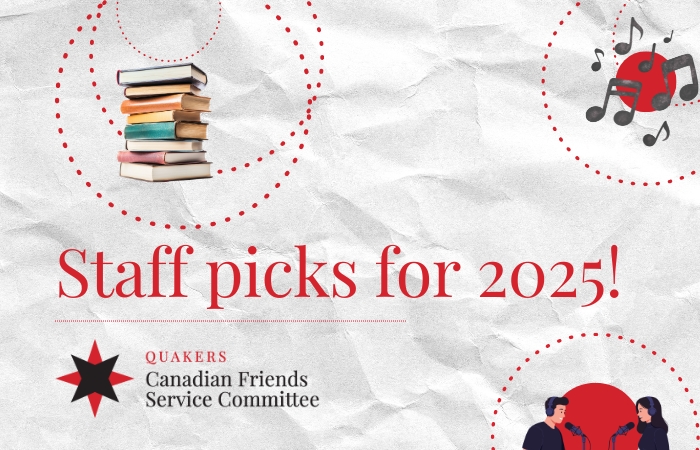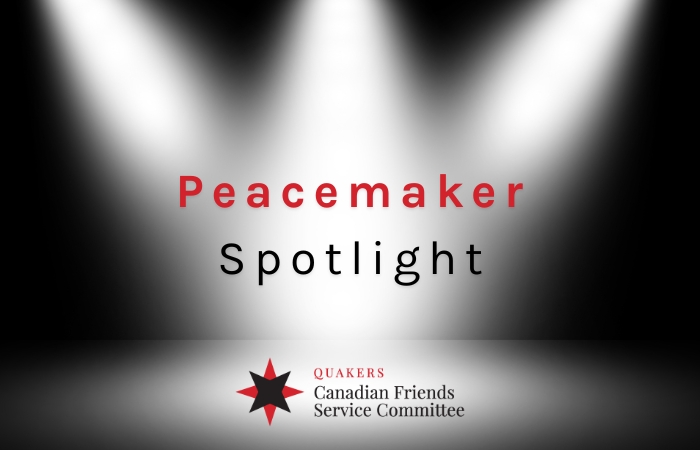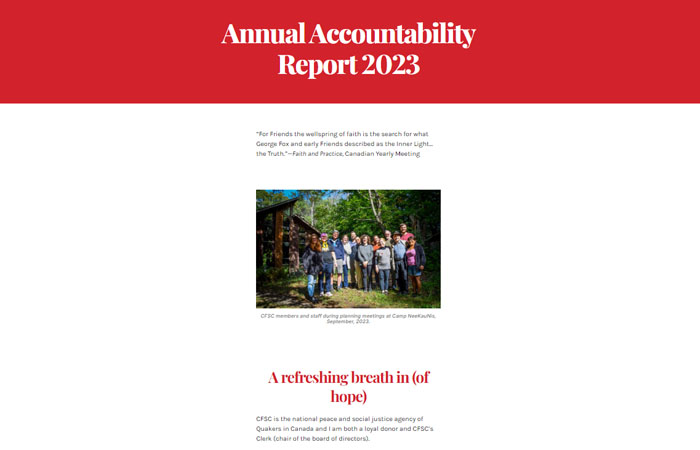
Canadian Friends Service Committee (Quakers) Annual Accountability Report 2023
December 4, 2023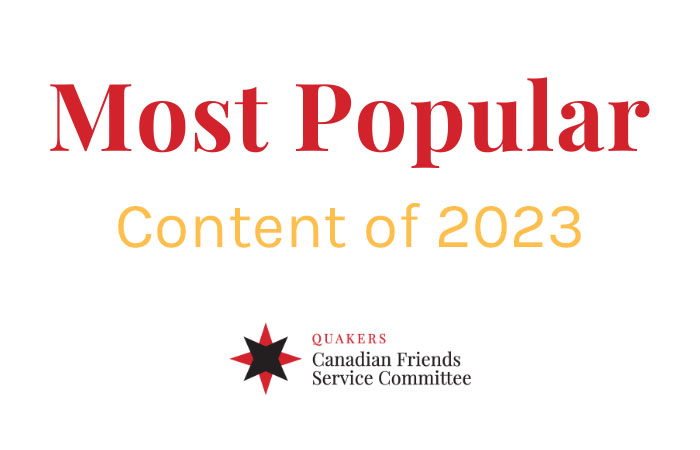
Our most popular content from 2023
January 2, 2024![]() Do you ever feel that you’d like to advance the work of reconciliation, but you’re confused or unsure where to begin? Maybe you have questions but don’t know who to ask. To help you out, we’ve spent the past three years seeking out a range of Indigenous voices on reconciliation. Are you curious what the people we asked had to say? The good news is that we brought a videographer with us to capture the conversations. More good news, those videos are below.
Do you ever feel that you’d like to advance the work of reconciliation, but you’re confused or unsure where to begin? Maybe you have questions but don’t know who to ask. To help you out, we’ve spent the past three years seeking out a range of Indigenous voices on reconciliation. Are you curious what the people we asked had to say? The good news is that we brought a videographer with us to capture the conversations. More good news, those videos are below.
Meet some of our Indigenous friends and partners and hear from them directly…
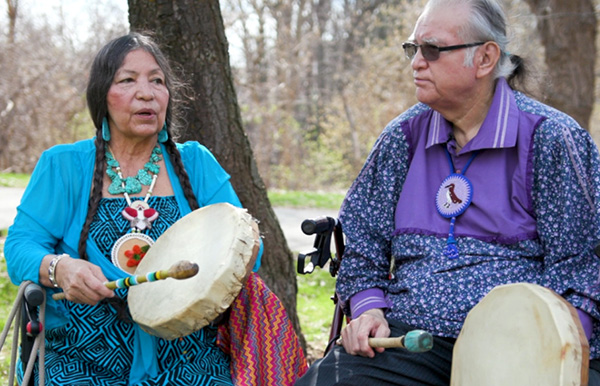
Mary Lou and Dan Smoke
Mary Lou is a member of the Ojibway nation and the Bear Clan, and is originally from Blind River, Ontario. Dan was a member of the Seneca Nation of the Iroquois Confederacy, and was originally from Six Nations of the Grand River Territory. He was a member of the Killdeer Clan and a lifetime member of the Onondaga Longhouse. Together, Dan and Mary Lou worked for many decades to advance Indigenous rights, encourage healing, and build cross-cultural understanding. For many years CFSC provided financial support for their educational radio program Smoke Signals. Dan has now passed on.
Here is what Mary Lou and Dan had to say…
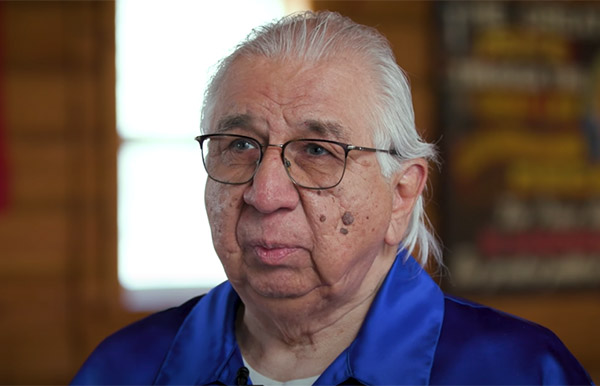
Kenneth Deer
Kenneth Deer is from the Bear Clan of the Mohawk Nation of Kahnawake. He is an award-winning journalist, educator, and internationally-known Indigenous rights activist. He was active in the development of the UN Declaration of the Rights of Indigenous Peoples. He holds an Honorary Doctorate Degree from Concordia University and was the 2010 recipient of the National Aboriginal Achievement Award.
Here is what Kenneth had to say…
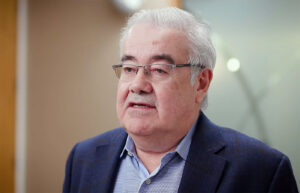
Bill Namagoose
Bill Namagoose is from the Cree Nation of Waskaganish and has recently retired from his position as Executive Director of the Cree Nation Government for the Grand Council of the Crees. He has worked tirelessly for many years on transforming Cree communities through numerous agreements between the Cree Nation Government and the governments of Quebec and Canada. The rights of the Cree have been a continual passion of his advocacy. In retirement, he is looking forward to enjoying some much deserved free time.
Here is what Bill had to say…
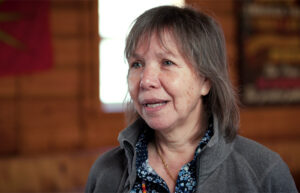
Katsi’tsakwas Ellen Gabriel
Katsi’tsakwas Ellen Gabriel is an artist and activist for Indigenous peoples’ human rights and the environment. She is Kanien’kehá:ka Rotinonhseshá:ka from Kanehsatà:ke and is Wakeniénhton (Turtle Clan). Ellen has been an activist for many years and continues to speak truth to power through her advocacy. Most recently, she has developed a passion for documentary filmmaking. Her film, Kanàtenhs: When the Pine Needles Fall won Best Short Documentary at the LA Independent Women Film Awards.
Here is what Ellen had to say…
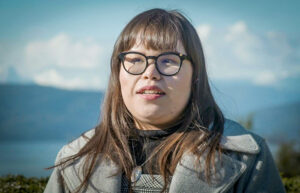
Naomi Bob
Naomi Bob is an Indigenous Youth Wellness Project Coordinator with PHSA Indigenous Health. Her family is from Snaw’naw’as/Nanoose First Nation, Lyackson First Nation, Peguis First Nation, and her grandfather was a settler from Melbu, Norway. She lives on the unceded and occupied ancestral territories of the xʷməθkʷəy̓əm (Musqueam), sḵwx̱wú7mesh (Squamish) and sel̓íl̓witulh (Tsleil-Waututh) Nations.
Here is what Naomi had to say…
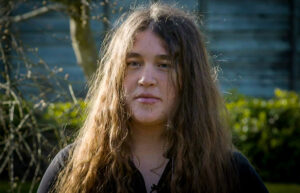
Haana Edenshaw
Haana Edenshaw is from the Tsiits Git’anee clan of Haida Gwaii. She has been an environmental justice and Indigenous rights activist throughout her life, including organizing climate strikes, speaking alongside Greta Thunberg at the Rally for Climate Justice in Vancouver, and delivering a speech in the Masset dialect of the Haida language at the United Nations Permanent Forum on Indigenous Issues.
Her deep commitment to social and environmental justice is rooted in the ancestral knowledge that land stewardship is both the basis of ecological health and essential to the practice and preservation of Indigenous culture.
At the time of filming Haana Edenshaw was part of a youth led action, including sleeping on the steps of the British Columbia legislature, to protest the Coastal GasLink pipeline on Wet’suwet’en territory.
Here is what Haana had to say…
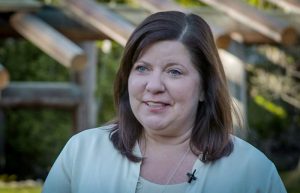
Sheryl Lightfoot
Sheryl Lightfoot is Anishinaabe from the Lake Superior band of Ojibwe. She is the University of British Columbia’s Senior Advisor to the President on Indigenous Affairs and the Canada Research Chair of Global Indigenous Rights and Politics. She is the Vice Chair and North American Member on the United Nations Expert Mechanism on the Rights of Indigenous Peoples (EMRIP).
Here is what Sheryl had to say…
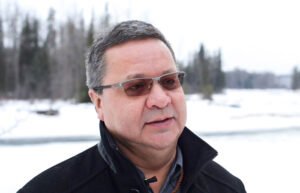
Kirby Muldoe
Kirby Muldoe is from the Tsimsian and Gitxsan Nations and he is a member of the Fireweed Clan in the house of Wii Gyet. His ancestral name is Hup Wil Lax A (carrier of wisdom). He has been an advocate for protecting and defending the environment and Indigenous human rights for decades.
Here is what Kirby had to say…
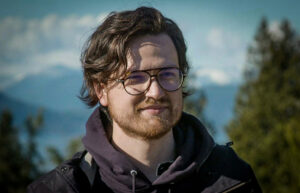
Collin Orchyk
Collin Orchyk is from Treaty 1, Peguis First Nation, Manitoba. Collin is a student in the Indigenous education program at the University of British Columbia and a former Youth Reconciliation Leader for Canadian Roots Exchange. He is also a singer/songwriter and has provided all background music for the videos in the Indigenous Voices on Reconciliation Series.
Here is what Collin had to say…
Learn more about reconciliation.


